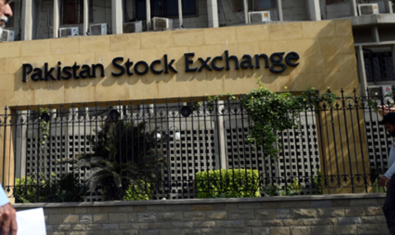Morgan Stanley Capital International (MSCI) today announced the launch of a consultation on a proposal for potential reclassification and downgrading of the MSCI Pakistan Index from ‘Emerging Markets’ to ‘Frontier Markets’ status.
This is coinciding with the November 2021 Semi-Annual Index Review.
Although the Pakistani equity market meets the requirements for Market Accessibility under the classification framework for Emerging Markets, it no longer meets the standards for Size and Liquidity.
ALSO READ
MSCI Releases Results of May 2021 Semi-Annual Index Review
Furthermore, since the November 2019 Semi-Annual Index Review, there have been no securities in the MSCI Pakistan equity universe that meet Emerging Markets Size and Liquidity criteria within the MSCI Market Classification Framework.
It is pertinent to mention here that Pakistan is already facing challenges to its international position of financial strength. The IMF program review remains inconclusive, the World Bank and the Asia Development Bank have followed suit with IMF to delay their promised projects with Pakistan, and the decision of the FATF on Pakistan’s future in its grey list also hangs in the balance.
While these multiple facets might or might not be interdependent, the collective result is unavoidably that of a downgrading for Pakistan’s international reputation for its capital market.
Renowned economist and Vice-Chancellor of Pakistan Institute of Development Economics, Dr. Nadeem ul Haque, spoke to ProPakistani and said, “Pakistan needs proper reforms if it ever hopes to improve its capital market. That never happens, so it is pointless to lament on what MSCI might or might not do now.”
Responding to a question on whether this will impact the momentum that the government had built with successful launches of Sukuk, Eurobonds, and green bonds, Dr. Haque said,
Sovereign guarantee is independent of these classifications. That debt should not have been issued in the first place because the fluctuating exchange rate is bound to aggravate it in the long run, but that itself was never an achievement for the capital market and could not have improved the image of the market in the first place.”
Business and economy journalist Khurram Hussain, however, believes that if MSCI goes ahead with this reclassification, it will not only negatively impact the government’s standing in the global debt market but also directly negatively impact the situation at home.
He said,
This new category will bring a new class of investors to Pakistan now. They will likely have short term goals from their investments that they bring into Pakistan and will also need higher risk premiums now.
CEO of Next Capital brokerage house, Najam Ali, who was also part of the two teams, which met leading foreign investors to pave the way for Pakistan’s reclassification to MSCI EM index in 2017, wrote on his Twitter, “What happened afterwards had more to do with Pakistan’s deteriorating FX situation and inclusion in grey list.”
ALSO READ
PSX Announces Launch of 90 Day DFC and New Futures Eligibility Criteria
Pakistan was upgraded to MSCI Emerging Markets Index in May 2017 after a gap of nine years. On Friday, the benchmark KSE-100 Index closed the first session at 47,791.90 points after a loss of 170.64 points or 0.36 percent.
If the reclassification goes through, the MSCI Pak FM would have a weight of 2.3 percent in the MSCI Frontier Markets index and 5.8 percent in the MSCI Frontier Markets 100 index. At the time of Pakistan’s upgrade, to MSCI EM from FM in 2017, Pakistan weight in MSCI Frontier Markets 100 index was around 8.5%.
It is worth mentioning that some of the active Frontier Market funds were still investing in Pakistan even though it was classified as an Emerging Market.

























